
Beer is one of the oldest and most widely consumed alcoholic drinks in the world, and the third most popular drink overall after water and tea. Beer is brewed from cereal grains—most commonly from malted barley, though wheat, maize (corn), and rice are also used. During the brewing process, fermentation of the starch sugars in the wort produces ethanol and carbonation in the resulting beer. Most modern beer is brewed with hops, which add bitterness and other flavours and act as a natural preservative and stabilizing agent. Other flavouring agents such as gruit, herbs, or fruits may be included or used instead of hops. In commercial brewing, the natural carbonation effect is often removed during processing and replaced with forced carbonation.
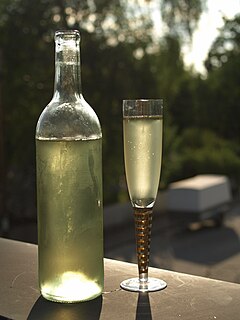
Mead is an alcoholic beverage created by fermenting honey with water, sometimes with various fruits, spices, grains, or hops. The alcoholic content ranges from about 3.5% ABV to more than 20%. The defining characteristic of mead is that the majority of the beverage's fermentable sugar is derived from honey. It may be still, carbonated, or naturally sparkling; dry, semi-sweet, or sweet.

Ginger ale is a carbonated soft drink flavoured with ginger. It is consumed on its own or used as a mixer, often with spirit-based drinks. There are two main types of ginger ale. The golden style is credited to the Irish doctor, Thomas Joseph Cantrell. The dry style, a paler drink with a much milder ginger flavour, was created by Canadian John McLaughlin.

Kumis is a fermented dairy product traditionally made from mare's milk. The drink remains important to the peoples of the Central Asian steppes, of Huno-Bulgar, Turkic and Mongol origin: Kazakhs, Bashkirs, Kalmyks, Kyrgyz, Mongols, and Yakuts. Kumis was historically consumed by the Han Chinese of North China as well.

In South and Central America, chicha is a fermented (alcoholic) or non-fermented beverage usually derived from grains, maize, or fruit., Chicha includes corn beer, known as chicha de jora, and non-alcoholic beverages such as chicha morada. Archaeobotanists have found evidence for chicha made from maize, the fruit of Schinus molle and Prosopis pods. Chichas can also be made from quinoa, kañiwa, peanut, manioc root, palm fruit, potato, Oxalis tuberosa, chañar or various other fruits.

Traditional ginger beer is a naturally sweetened and carbonated, usually non-alcoholic beverage. It is produced by the natural fermentation of prepared ginger spice, yeast and sugar.
Steam beer is a highly effervescent beer made by fermenting lager yeasts at warmer ale yeast fermentation temperatures. It has two distinct but related meanings:
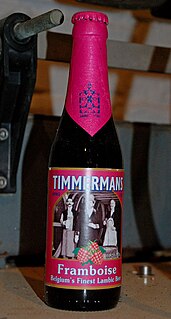
Framboise is the name of two kinds of alcoholic drinks fermented with the raspberry.
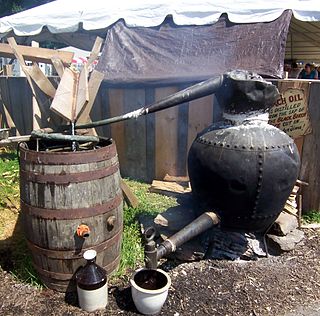
Birch beer in its most common form is a carbonated soft drink made from herbal extracts and birch bark. There are dozens of brands of birch beer available.

Umqombothi, from the Xhosa and Zulu language, is a beer made from maize (corn), maize malt, sorghum malt, yeast and water. It is commonly found in South Africa. It is very rich in vitamin B. The beer has a rather low alcohol content and is known to have a heavy and distinctly sour aroma. In appearance, the beer is opaque and light tan in colour. It has a thick, creamy and gritty consistency.

Purposeful production of alcoholic drinks is common and often reflects cultural and religious peculiarities as much as geographical and sociological conditions.

The cuisine of Botswana is unique but also shares some characteristics with other cuisines of Southern Africa. Examples of Setswana food include pap, samp, vetkoek, bogobe and mopane worms. A food unique to Botswana is seswaa, salted mashed-up meat. Watermelons are believed to have originated in Botswana.
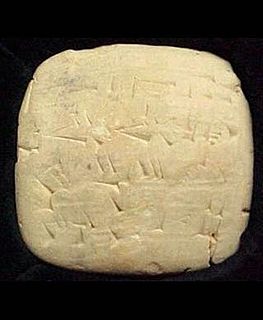
Beer is one of the oldest drinks humans have produced, dating back to at least the 5th millennium BC in Iran, and was recorded in the written history of ancient Egypt and Mesopotamia and spread throughout the world.
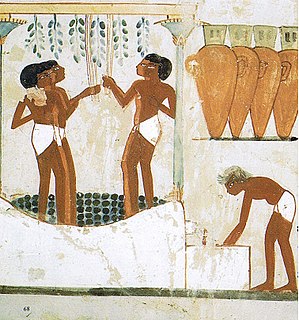
Fermentation in food processing is the process of converting carbohydrates to alcohol or organic acids using microorganisms—yeasts or bacteria—under anaerobic conditions. Fermentation usually implies that the action of microorganisms is desired. The science of fermentation is known as zymology or zymurgy.

An alcoholic drink is a drink that contains ethanol, a type of alcohol produced by fermentation of grains, fruits, or other sources of sugar. Drinking alcohol plays an important social role in many cultures. Most countries have laws regulating the production, sale, and consumption of alcoholic beverages. Some countries ban such activities entirely, but alcoholic drinks are legal in most parts of the world. The global alcoholic drink industry exceeded $1 trillion in 2014.

Tejuíno is a cold beverage made from fermented corn and popularly consumed in the Mexican state of Jalisco. Tejuino is usually made from corn dough, the same kind used for tortillas and tamales. The dough is mixed with water and piloncillo and boiled until the liquid is very thick. The liquid is then allowed to ferment very slightly. The resulting drink is generally served cold, with lime juice, a pinch of salt and a scoop of shaved ice or lime sorbet.
Burukutu is an alcoholic beverage, brewed from the grains of Guinea corn and millet.
The alcoholic beverage is often produced in Tropical African countries such as Nigeria, Kenya, Ethiopia and Burundi as one of the major traditional and local alcoholic drink. It is commonly consumed in Northern Guinea savanna region of Nigeria, Ghana and Republic of Benin.

A malt drink is a fermented drink in which the primary ingredient is the grain, or seed, of the barley plant, which has been allowed to sprout slightly in a traditional way called "malting" before it is processed.

















